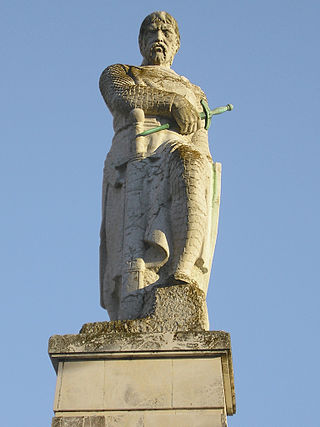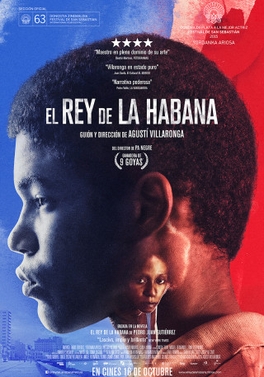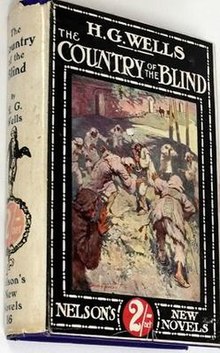Spanish proverbs are a subset of proverbs that are used in Western cultures in general; there are many that have essentially the same form and content as their counterparts in other Western languages. Proverbs that have their origin in Spanish have migrated to and from English, French, Flemish, German and other languages.
The Spanish National Organization of the Blind, commonly known as the ONCE, is a Spanish foundation founded on December 13, 1938, to raise funds to provide services for the blind and people with serious visual impairment.

Álvar Núñez Cabeza de Vaca was a Spanish explorer of the New World, and one of four survivors of the 1527 Narváez expedition. During eight years of traveling across what is now the US Southwest, he became a trader and faith healer to various Native American tribes before reconnecting with Spanish civilization in Mexico in 1536. After returning to Spain in 1537, he wrote an account, first published in 1542 as La relación y comentarios, which in later editions was retitled Naufragios y comentarios. Cabeza de Vaca is sometimes considered a proto-anthropologist for his detailed accounts of the many tribes of Native Americans that he encountered.

Alonso Pérez de Guzmán (1256–1309), known as Guzmán el Bueno, was a Spanish nobleman and hero of Spain during the medieval period, the founder of the line from which the Dukes of Medina Sidonia descend.
Industriales is a professional baseball team in the Cuban National Series. Located in Cerro, La Habana, it is known as the only team representing the country’s capital, Havana. Industriales is historically the most successful team in the National Series, although they have played under other names throughout their history. The Super Classic of Cuban National Series takes place six times per season between Industriales and Santiago de Cuba, the Cuban equivalent of the New York Yankees–Boston Red Sox rivalry. The matchup also represents the rivalry between the two cities, dating back to the era when Cuba was a colony of Spain more than two centuries ago. They are known as the Lions, "The Blues" or "The Blue Lions". Royal blue is their color, though teams like Camagüey and Ciego de Ávila also have blue uniforms

Carmen is a 2003 Spanish drama film directed by Vicente Aranda. The script was written by Aranda and Joaquim Jordà adapting the classic romance of the same name by Prosper Mérimée. Director Vicente Aranda based the plot on Mérimée's original 1847 novella about jealousy and passion, not its famous operatic adaptation by Bizet from 1875, changing some details about the love story between Carmen and José. As in the novella, author Mérimée is portrayed as a French writer who finds the "real" Carmen in early 19th century Spain.
Antonio de Espejo was a Spanish explorer who led an expedition, accompanied by Diego Perez de Luxan, into what is now New Mexico and Arizona in 1582–83. The expedition created interest in establishing a Spanish colony among the Pueblo Indians of the Rio Grande valley.

The legend of The Twelve Sisters or The Twelve Ladies, known as Nang Sip Song (นางสิบสอง) or as Phra Rot Meri (พระรถเมรี) in Thai and រឿងភ្នំនាងកង្រី Puthisen Neang KongRei in Cambodia, is a Southeast Asian folktale, and also an apocryphal Jātaka Tale, the Rathasena Jātaka of the Paññāsa Jātaka collection. It is one of the stories of the previous lives of Shakyamuni Buddha in which Rathasena, the son of one of the twelve women, is the bodhisattva.

Raúl Arévalo Zorzo is a Spanish actor and director. He has featured in films such as Dark Blue Almost Black (2006), Seven Billiard Tables (2007), The Blind Sunflowers (2008), Fat People (2009), Cousinhood (2011), I'm So Excited (2013), Marshland (2014), and The Europeans (2020) and television series such as La embajada (2016) and Riot Police (2020).
Miguel Giménez Igualada was a Spanish individualist anarchist writer also known as Miguel Ramos Giménez and Juan de Iniesta.
Los Ciegos Del Barrio is an all blind multi-genre Latin American music band based out of the New York City area. They specialize in salsa, merengue, bachata music, cumbia and rock in both English and Spanish. They have recorded several albums and singles since 2000. Los Ciegos Del Barrio translates from Spanish to mean "the blind boys from the neighborhood."

John of Castile, called the "el de Tarifa" was an infante of Castile and León. He was engaged in a decades-long fight for control over the Lordship of Biscay with Diego López V de Haro, the uncle of his wife.
The Crow or Raven and the Snake or Serpent is one of Aesop's Fables and numbered 128 in the Perry Index. Alternative Greek versions exist and two of these were adopted during the European Renaissance. The fable is not to be confused with the story of this title in the Panchatantra, which is completely different.

Juan de Castilla y Haro, most commonly known as Juan el Tuerto, was a Spanish noble of the House of Haro and of the royal line of the Kingdom of Castile descended from Alfonso X of Castile. He was the Lord of Cuéllar from 1319 to 1325 and the Lord of Biscay from 1322 until his assassination by order of King Alfonso XI of Castile in 1326.
DonAbraham Seneor or Abraham Senior was a Sephardi rabbi, banker, politician, patriarch of the Coronel family and last Crown rabbi of Castile, a senior member of the Castilian hacienda. In 1492, at the age of 80, he converted to Roman Catholicism from Judaism. Taking the name Ferran, Fernan, Fernão Nunez Coronel, or Fernando Pérez Coronel; thus founding the noble lineage of Coronel.
Oriol Sellarès Martínez is a Spanish track and field competitor on the regional level and a track and field sighted guide on the international level, representing Spain at the 2012 Summer Paralympics as the guide for Ricardo de Pedraza Losa.
Amaya Alonso Álvarez is a Spanish Paralympic swimmer who has represented her counter at the 2008 and 2012 Summer Paralympics.

Juan de Mal Lara was a Spanish humanist, poet, playwright and paremiologue at the University of Seville during the period of the Spanish Renaissance in the reign of Philip II of Spain.

El ciego de la aldea(English: The Blind Man of the Village) is a Spanish short silent film directed by Ángel García Cardona. It was released in Spain in 1907, making it the first Spanish melodrama on film.

The King of Havana is a 2015 Spanish-Dominican drama film directed by Agustí Villaronga which adapts Pedro Juan Gutiérrez's dirty realist novel El rey de La Habana. It stars Maykol David Tortolo, Yordanka Ariosa and Héctor Medina. It is set in the Cuban capital during the Special Period.











